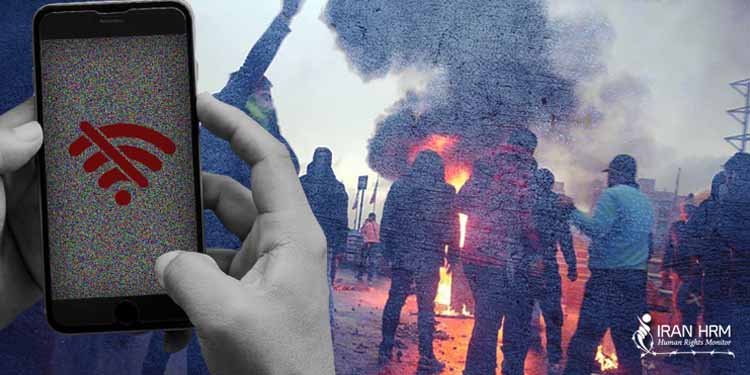
Internet Shutdowns in Iran
In Iran today, internet shutdowns are no longer rare or surprising. They’ve become a regular tactic—a way for the government to control the people, not to solve real problems. These blackouts now happen more often, without warning, and with no explanation. It’s as if the entire country’s internet is controlled by a switch in Ali Khamenei’s bedroom—turned off whenever he or those around him feel threatened.
June 2025:
A nearly 12-day blackout shut down access to the global internet. VPNs stopped working. Messaging apps were blocked. The government said little. In reality, it was about silencing the public and give Iranian people a shock to lose contact with their family.
September 2022:
In September 2022, following the death of 22-year-old Mahsa Amini in the custody of Iran’s morality police, a wave of outrage swept across the country. What began as grief quickly turned into one of the largest and most powerful protest movements Iran had seen in decades, led by women and fueled by anger, hope, and courage. As people flooded the streets chanting “Zan, Zendegi, Azadi” (“Woman, Life, Freedom”), the government responded with force—not just physical, but digital. In a calculated move, authorities shut down mobile internet across many cities, blocked access to Instagram and WhatsApp—the last major global platforms still available in Iran—and aggressively filtered VPNs. The purpose was clear: to isolate the people, stop their ability to organize, and prevent images of police violence and state brutality from reaching the outside world. For many, this blackout was not just an inconvenience; it was a direct attack on their sense of unity and safety. Families couldn’t reach each other, activists lost their networks, and citizens were left in an eerie silence, unsure whether the protests were growing or fading. The internet shutdown became a psychological weapon—fueling confusion, fear, and loneliness. And while the regime hoped that cutting off communication would crush the movement, it only exposed their fear of connection. Because in today’s world, cutting off the internet is not just censorship—it’s an attempt to erase resistance before it becomes history.
November 2019:
In November 2019, the Iranian government carried out one of the most extreme internet shutdowns in the world’s recent history. It began suddenly, after the announcement of a steep fuel price hike that triggered mass protests across dozens of cities. Within hours, people poured into the streets—angry, desperate, and fed up. The protests were intense, fast-moving, and widespread. And the regime panicked. To block the spread of information, coordination of protests, and evidence of its own violence, the government pulled the plug entirely. For over a week, the entire nation—more than 80 million people—was cut off from the global internet. No access to news. No messages in or out. No way for families to check if their loved ones were alive. It wasn’t just a blackout—it was a curtain of silence dropped over the country while, behind it, the state launched a violent crackdown. Security forces opened fire on protesters in multiple cities. By the time the internet was restored, hundreds had been killed, and many more were injured, arrested, or disappeared. The world only learned of the massacre after the fact—through blurry videos and witness accounts that leaked out slowly. The 2019 shutdown was a turning point: it proved the regime was willing to use full digital isolation as a cover for mass violence. Since then, every internet disruption in Iran carries a sense of dread, because people remember 2019. They remember what silence can hide. And they know that when the internet goes out, something terrible might be happening in the dark.
These shutdowns are not accidents. They are part of a larger strategy: to control speech, kill momentum, and keep people in the dark.
Iran’s leaders treat the internet not as a right, but as a privilege they can turn on or off—like a light switch. And the person holding that switch is Ali Khamenei.
But the truth is:The internet is not his to give. It belongs to the people.